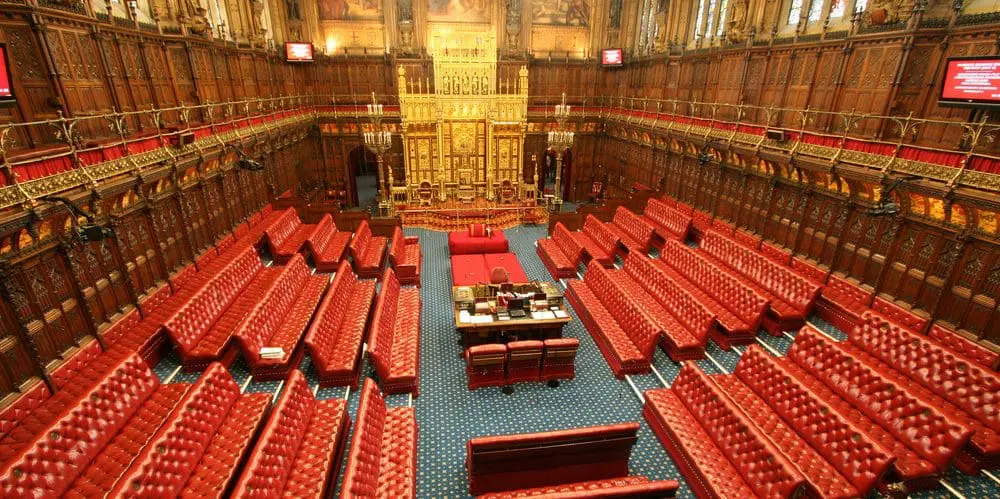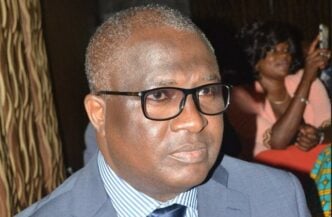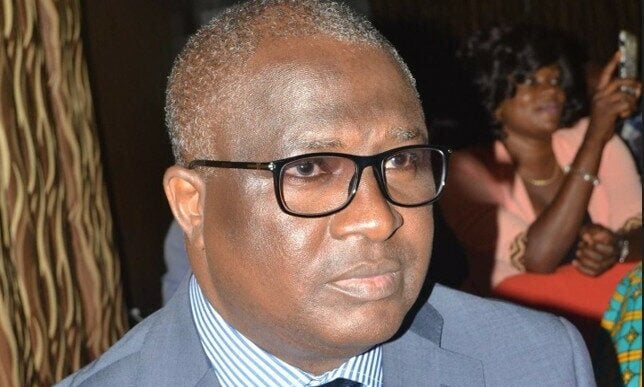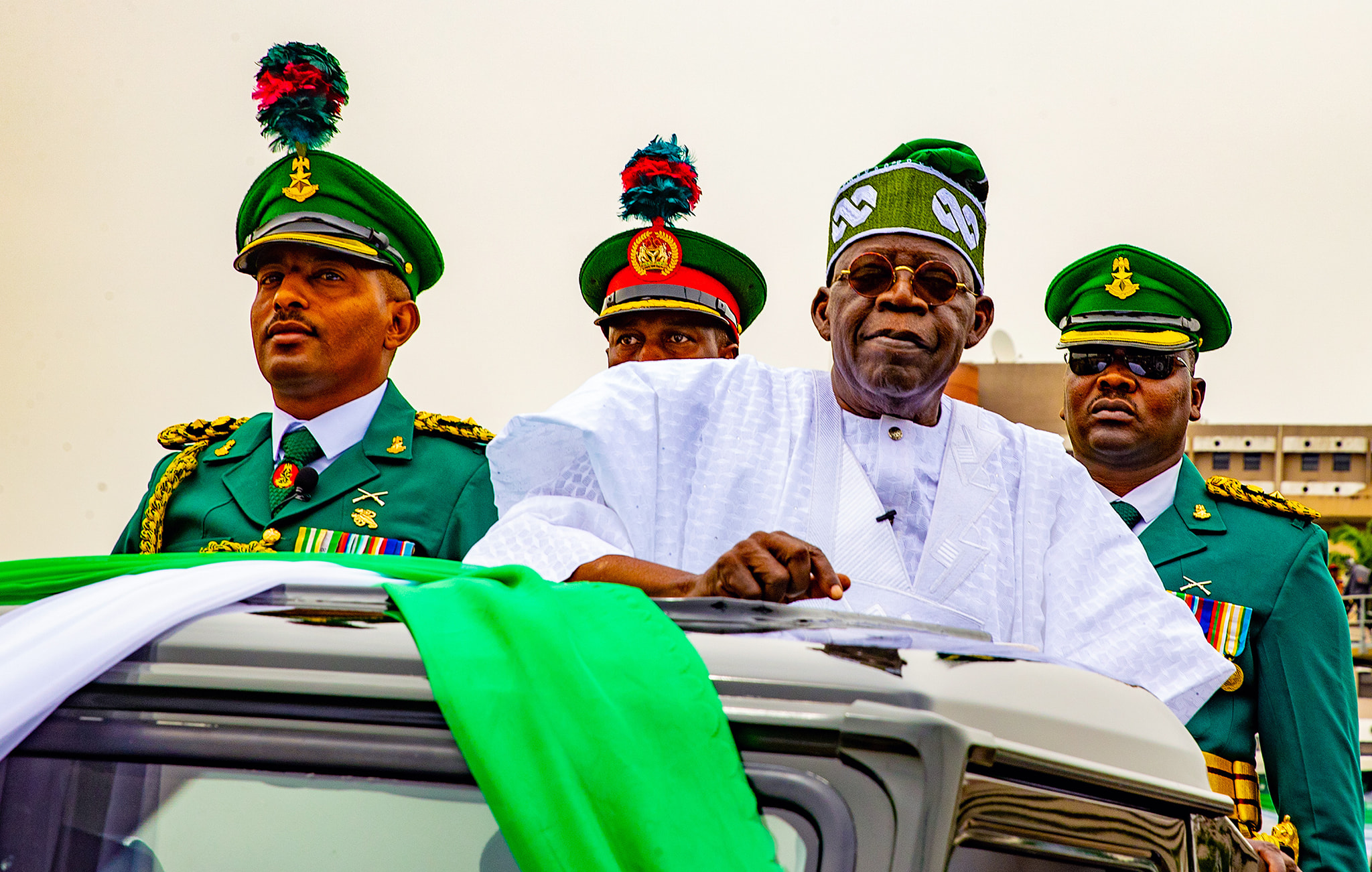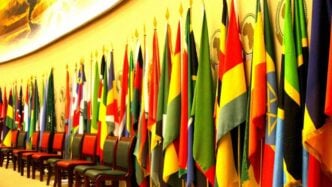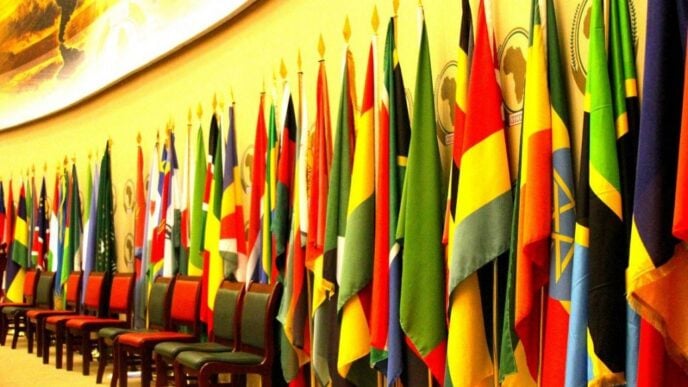The UK House of Lords
Let us start with an inconvenient truth, one that every Nigerian quietly knows and every politician loudly denies: our democracy is too expensive to sustain. The Nigerian National Assembly burns through public funds faster than a danfo in Lagos burns fuel on the Third Mainland Bridge. Every four years, we replace an entire fleet of legislators, rent new consciences, and buy new furniture for old problems. Then we clap for ourselves as if we have done something noble. Yet, in all this financial drama and institutional noise, we have ignored the most stable, enduring, and respected institution in our national fabric, which is our traditional stools.
Here is my suggestion, one that may sound radical at first but is rooted in pure Nigerian logic: let the Senate evolve into a House of Lords, made up of our traditional rulers. The Obas, Emirs, Obis, Tor Tiv, and Ezes, those men and women who have carried the moral weight of their people for centuries, should become the upper chamber of our National Assembly.
Before anyone raises an eyebrow, let us reason this together. Traditional rulers never leave office and never defect from one party to another because someone promised them a more “lucrative” committee position. You do not campaign to be an Oba, and you do not print posters to be an Emir. You are chosen by tradition and confirmed by lineage. These are leaders whose legitimacy is organic and whose thrones are built not on the fragile foundation of party loyalty but on ancestral continuity and communal trust.
Imagine the beauty of it: the House of Lords would meet at least twice a month because these rulers still have kingdoms to govern and subjects to serve. Their task would be to deliberate on national matters that require depth, context, and cultural understanding, things often missing in our current National Assembly. While the House of Representatives continues to perform the function of the elected chamber, representing modern political interests, the House of Lords would provide the stabilising wisdom of tradition. It would be a balance between the energy of democracy and the wisdom of heritage.
Advertisement
Let us be clear: this is not a nostalgic yearning for the past but a forward-looking innovation. Every successful democracy adapts its structure to its culture. The British Parliament has its own House of Lords, and the United States has its Senate. Both serve as upper chambers of review and reflection, designed to check the haste of populism. Nigeria can adopt a similar model, but one that truly reflects our identity.
Now, imagine a national debate where the Emir of Kano, the Ooni of Ife, the Obi of Onitsha, the Tor Tiv, and the Shehu of Borno sit together to deliberate on the nation’s direction. Imagine discussions on national security, unity, and morality being led by those who live within the communities that politicians only visit during election season. Imagine the depth of perspective and moral clarity that would emerge. It would not only bring governance closer to the people but also remind Nigerians that our democracy was never meant to erase our traditions but to coexist with them.
Financially, this model makes absolute sense. It would drastically reduce the cost of governance. The current Senate structure consumes billions annually on salaries, allowances, and endless “oversight” activities. Traditional rulers are already maintained by their communities and the state. Converting their council into a constitutional chamber would not require an additional financial burden. We would simply formalise an existing reality and replace political redundancy with cultural efficiency.
Advertisement
Beyond cost, however, lies dignity. Our traditional institutions have been treated as ornamental and trotted out for cultural festivals, coronations, and political endorsements, yet denied constitutional relevance. Governors often treat kingship as an extension of their office, approving or disapproving stools as if tradition were an item on an executive checklist. This practice is not only insulting but destabilising.
In my proposed model, all state-recognised religious and traditional stools would be federally ratified under the House of Lords. This means that no governor can withhold a staff of office or interfere with succession. The integrity of traditional institutions would be protected by federal recognition, not political convenience. If a man holds a throne, it is not because a politician said so but because history affirmed it.
Critics will argue that this system will drag us backwards, that we will mix politics with tradition, and that democracy must remain secular. My response is simple: we have been secular on paper and tribal in practice. Every major political decision in Nigeria already consults the palace before it consults the people. We have just refused to admit it. By formalising this influence, we create a structure that is honest about who we are and intelligent about how to use it.
Our traditional rulers have something most politicians do not: continuity and memory. They understand conflict resolution not from textbooks but from centuries of communal negotiation. They embody intergenerational stability, and they represent values that cannot be bought with campaign donations. Including them in the national framework is not a sentimental move; it is an institutional correction.
Advertisement
We often say Nigeria needs moral rebirth. Where better to start than by giving a constitutional voice to the custodians of morality? A House of Lords would serve as the moral conscience of the federation, and it would remind the House of Representatives that governance is not only about passing budgets but about building a nation that remembers its roots.
This is not an attempt to discard democracy but to domesticate it. For too long, we have copied Western systems without considering our own social architecture. Our problem is not democracy itself but the refusal to make it Nigerian. The British built a democracy that respected their monarchy and traditions. The Americans built one that suited their pioneering spirit and federal balance. Nigeria can build a democracy that honours her thrones, councils, and ancestral wisdom.
And so, if the idea of a Nigerian House of Lords sounds radical to you, I invite you to consider how radical our current wastefulness already is. We have spent decades funding a legislature that rarely legislates for the people and often debates its own privileges. What if, instead, we invested in a chamber of elders whose loyalty cannot be bought and whose authority comes from something deeper than votes, and it comes from heritage?
Let us evolve a democracy that reflects who we are and not who we were told to be. Let us stop pretending our thrones are relics when they are, in fact, the pillars that have kept our communities from collapsing completely.
Advertisement
If we want to save costs, preserve culture, and strengthen governance, then it is time to bring the crown into the conversation not as a guest but as a guardian.
For the love of country,
Advertisement
Kunle Lawal is the executive director of Electoral College Nigeria
Advertisement
Views expressed by contributors are strictly personal and not of TheCable.

